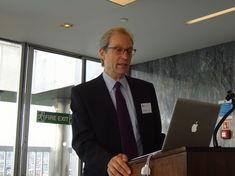
Systemic change is needed across the world if we are to tackle the problem of food security, according to a leading expert.
A recent influential piece of work from Chatham House carried out on Food Matters has outlined four key scenarios in food production:
• What if high food prices are just a blip and they return to normal soon?
• What if food prices remain high for a decade or more?
• Are we up against the limits and moving into a new food era, with systemic change required?
• What if a major world food crisis develops?
Hardin Tibbs, the scenario planning expert who led the study, identified three long-term processes set to shape the future of agriculture at a gathering of the Chartered Institute of Marketing’s Food, Drink & Agriculture Group this week.
The first process will be a transition away from fossil energy. “Global oil production is at its peak,” said Tibbs, predicting a transition away from an oil economy over the next few decades, with something else in replacement.
The second process highlighted was the response to the challenge of systemic and ecological limits. “The volume of industrial throughput is reaching a global environmental scale,” Tibbs continued. “Food could be the canary in the mine in terms of global system dynamics.”
Tibbs predicted a system change would be necessary, with more fundamental change required to tackle food production than simply faster growing techniques or technology. “In principle, the flow of materials could be made into a closed loop,” he said, advocating a regenerative approach to nature and technology. “If we carry on we will hit the buffers of our limits, but if we change the system, these limits will dissolve away.”
The third process would involve a cultural shift in values, from modernity to what Tibbs referred to as ‘transmodernity’. This would involve “an economy based not on rapid growth but on sustainability - a slower growing, but culturally rich and sustainable economy”, he said.
Tibbs added: “There has been a shift in innovation in agriculture. Up to now it has been based on maximising yields using oil-based inputs. But we will shift to a regenerative cycle for agriculture.
“We are seeing large-scale global trends having a driving effect on food, which will enable us to deal with environmental impact, reduce our dependency on oil and improve the quality of our food. But it won’t be an easy transition - everything in the system will have to change. For 200 years we have thought rapid growth in the economy is good. Now we are approaching deceleration point.”